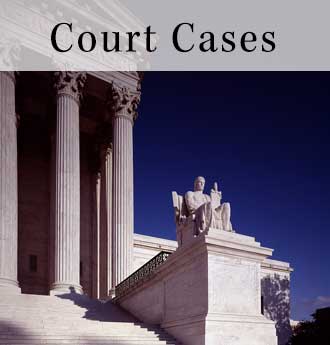Lesson 18: How Has the Due Process Clause of the Fourteenth Amendment Changed the Constitution?
due process of law A requirement stated in the Fifth and Fourteenth Amendments that treatment by state and federal governments in matters of life, liberty, or property of individuals be reasonable, fair, and follow known rules and procedures. See procedural due process and substantive due process
fundamental rights See basic rights
incorporation The process through which the U.S. Supreme Court has applied the due process clause of the fourteenth Amendment to extend the reach of the Bill of Rights to include protection from interference by states.
inquisitorial system A trial system in which a judicial official or set of officials acts as both prosecutor and judge, questioning witnesses, examining evidence, and reaching a verdict.
procedural due process The principle that government must respect all, not some, of a person's legal rights. Government must not subject individuals to unreasonable, unfair, or arbitrary treatment.
substantive due process Judicial interpretations of the due process clauses of the U.S. Constitution requiring the content of law to be fair and reasonable.








